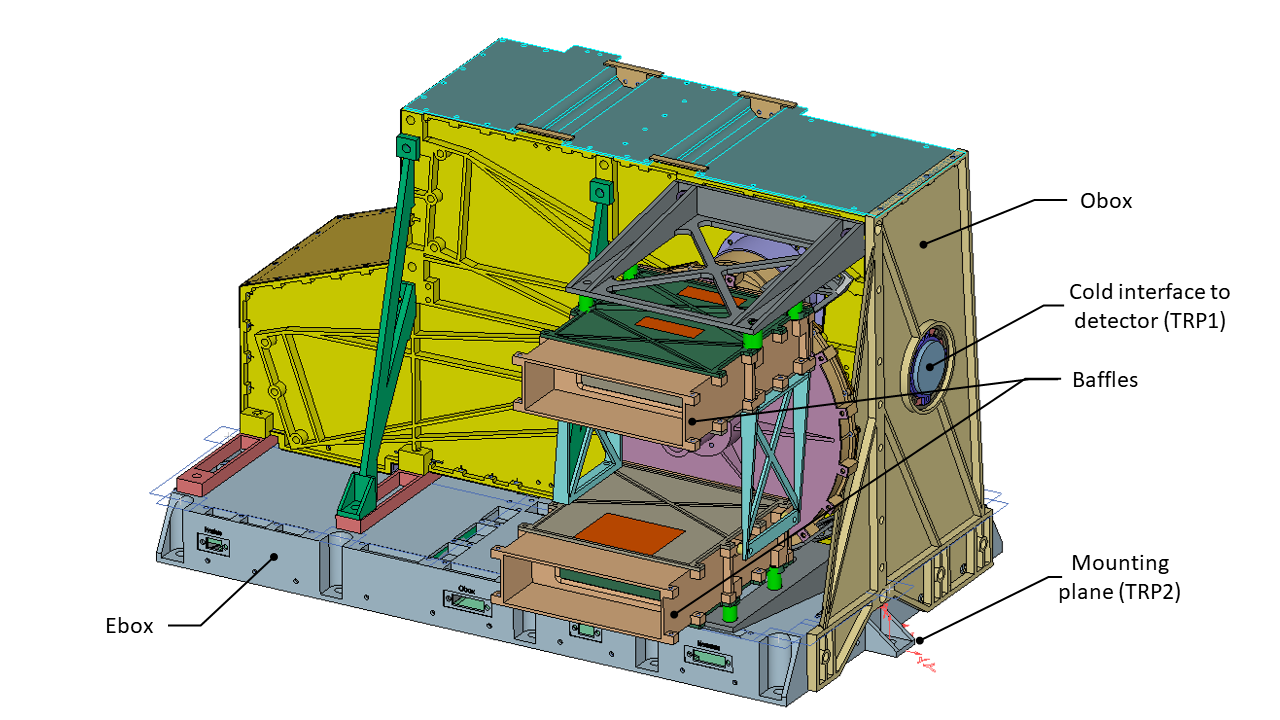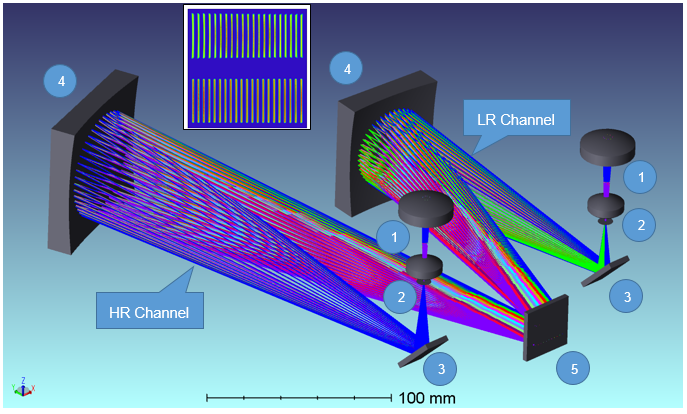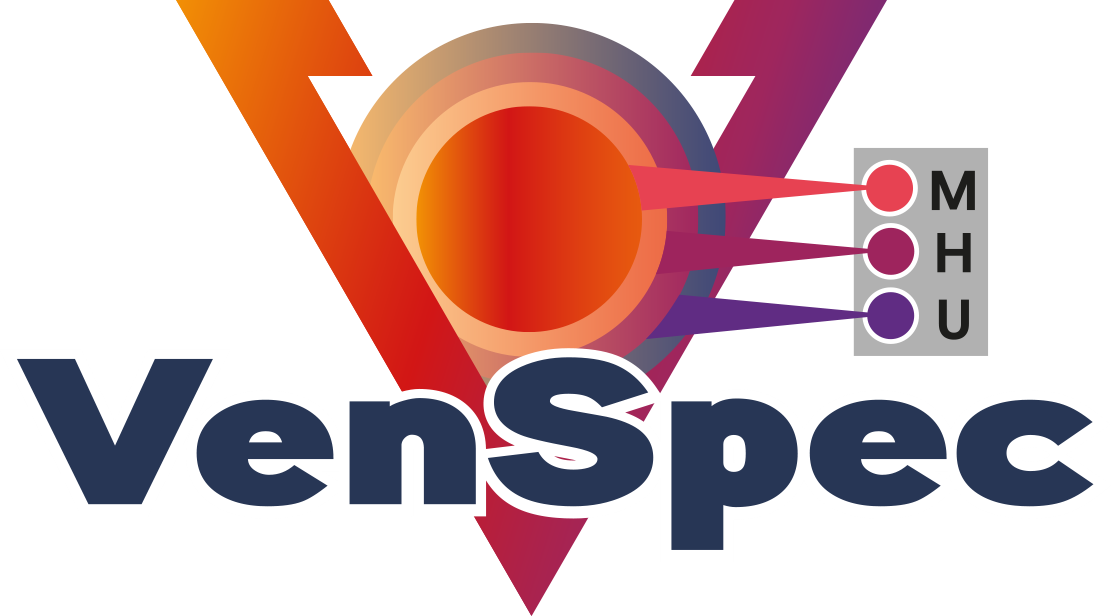




VenSpec-U (also known as VeSUV) is a compact ultraviolet spectrometer developed for the ESA's EnVision mission to Venus, inspired by the UV spectrometer PHEBUS on BepiColombo. It integrates an optical box (Obox) and an electronic box (Ebox) to minimize mass and size, though at the cost of increased mechanical and thermal complexity. The instrument is mounted flat and conductively coupled to the spacecraft in a thermally stable cavity.
In order to meet its science objectives, VenSpec-U features a dual-channel system for low (LR) and high (HR) spectral resolution, using a single CMOS detector. The channels are co-aligned and operated simultaneously, utilizing a Rolling Shutter scheme. Each channel has a baffle, lens objective system, and a spectrometer with a holographic grating and short-pass filters to manage wavelengths beyond specified ranges. A light trap reduces stray light.
Calibration is performed using optical diffusers and pinholes during specific spacecraft maneuvers. The wheel mechanism also handles the opening and closing of optical apertures for observations, calibrations, and contamination protection. The detector's temperature is regulated to -25°C with a Peltier cooler linked to the spacecraft's thermal interface.
UV LEDs in the Obox provide homogeneous irradiance for functional tests and sensor characterization. The design is focused on cleanliness to prevent contamination, which could degrade UV performance. Anti-contamination heaters prevent material buildup, while decontamination heaters clean optical surfaces as needed.
Control relies on three electronic boards in the Ebox: the SubPSU board for power management, the DPU-FEE board for data processing and instrument control, and the IF board for subsystem monitoring and control.
| HR | LR | |
|---|---|---|
| Spectral range [nm] | 205-235 | 190-380 |
| Spectral resolution [nm] | 2-5 | 0.3 |
| Spatial sampling [km²] | 12×12 to 24×24 | 3×3 to 5×5 |
| Transverse iFoV [°] | 20 | |
| SNR @ 220 nm | ≥100 | ≥200 |
| Detector | Capella CIS 120 | |
| Typical Power [W] | 25.6 | |
| Typical Datarate [kbit/s] | 347 | |
| Enveloppe [mm³] | 291×468×353 | |
| Mass [kg] | 9.32 | |
Last Modified: | Design by Andreas Viklund | Inspired from Aymeric Spiga's homepage